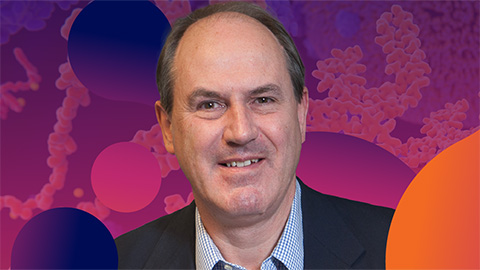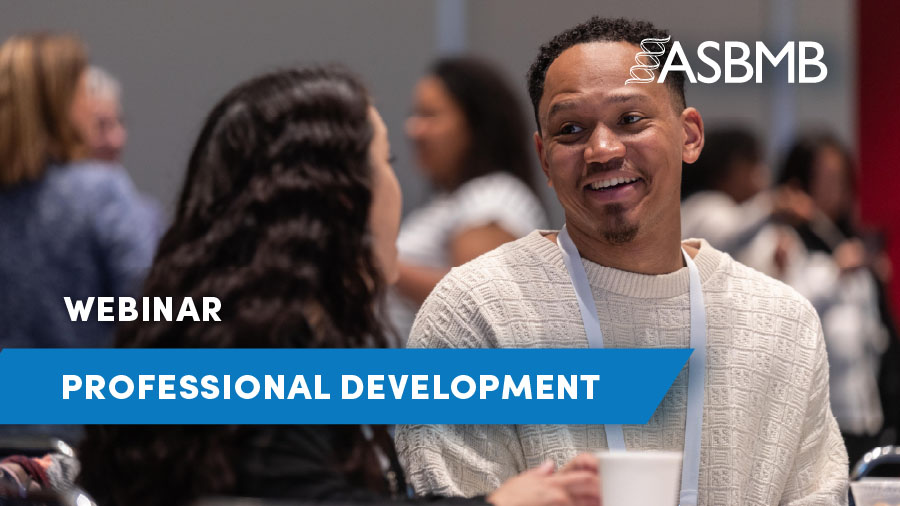A year of academic advice
It’s been nearly a year since I have been on the academic careers beat for ASBMB Today. Although I’ve spent most of my life in academia (as a grad student and postdoc), I took over the column right after starting a new job outside of academia. It’s been fun writing from the outside looking in, and it has helped me still feel connected to the system I was a part of for so long.
As 2022 comes to a close, I took a look back at all the wonderful sources to whom I spoke, the wisdom they offered, and some of the topics I touched on. Here’s are highlights that will hopefully resonate with readers at any career stage.
Grad school 101
When I was applying for grad schools, I knew virtually nothing about them. I knew nobody that had gone to grad school in any subject and my undergrad advisers were … less than helpful. So, I really wanted to highlight some of the basics for students, recent grads or anyone else who might be in a similar situation.
I recommend starting by thinking about which grad school program may be right for you, since it’s not a one-size-fits-all decision. Geographic location, research opportunities and more can play into your decision, and it’s OK to weigh each of those differently based on what matters to you.
Once you get in, there are a lot of decisions to make. Where do I live? Do I actually need the textbooks? How do I get the accommodations I need? I broke down some of these in a short starter guide to grad school.
As with almost any educational decision, grad school selections come with financial strings attached. Understanding that most Ph.D. students are funded and how they are funded can be important information to know prior to applying to programs. Once you’re in a program, it’s important to know how to manage your budget.
Grad school toolkit
Even once you’re in grad school, it can be difficult to navigate the challenges that arise. The best piece of advice I heard this year (and one that I completely agree with) is to keep lines of communication open — between you and your mentor, you and your program, and with other important parties.
I spoke with professors about how to ask for time off around the holidays, and they said early communication was key. The same sentiment was emphasized when figuring out how to discuss authorship once you start publishing.
Beyond communication, there are tools and resources you can access to help improve your grad school experience. I highly recommend taking advantage of all of the resources offered by the graduate student association at your school. These associations often provide travel awards and leadership opportunities. There are also many digital tools that can help organize your articles, research and life.
A changing culture
There were two columns that stuck out to me because they had less to do with advice and more to do with perspective.
In the latest look at tenure, I discussed the most recent findings from the American Association of University Professors regarding tenure practices. Some of the changes were positive: More programs are including diversity, equity and inclusion training and criteria for their tenure boards, although the numbers are still low. Some were discouraging: Several institutions are replacing positions that have been traditionally on the tenure track with non-tenure-track roles, and demand for tenure-track positions still remains high. Either way, it’s an important data-driven look at the current state of tenure.
For another column about culture shifts within academia, I spoke with a senior investigator and the way grad students are viewed today versus in the past. Kevin Struhl of Harvard Medical School said that he considered himself an “independent agent” when he was a grad student, whereas now many grad students are viewed more as student employees. This difference in mentality, on the part of principal investigators, affects numerous facts of the mentor–mentee relationship, including leave requests.
Regardless of where you are in your career, hopefully at least one of these articles helped you in some way. Stay tuned for more stories and academic advice in 2023, and happy new year!
Enjoy reading ASBMB Today?
Become a member to receive the print edition four times a year and the digital edition monthly.
Learn moreFeatured jobs
from the ASBMB career center
Get the latest from ASBMB Today
Enter your email address, and we’ll send you a weekly email with recent articles, interviews and more.
Latest in Careers
Careers highlights or most popular articles

Upcoming opportunities
ASBMB's PROLAB award helps graduate students and postdoctoral fellows spend up to six months in U.S. or Canadian labs.

From humble beginnings to unlocking lysosomal secrets
Monther Abu–Remaileh will receive the ASBMB’s 2026 Walter A. Shaw Young Investigator Award in Lipid Research at the ASBMB Annual Meeting, March 7-10 in Washington, D.C.

Chemistry meets biology to thwart parasites
Margaret Phillips will receive the Alice and C. C. Wang Award in Molecular Parasitology at the ASBMB Annual Meeting, March 7-10 in Washington, D.C.

Decoding how bacteria flip host’s molecular switches
Kim Orth will receive the Earl and Thressa Stadtman Distinguished Scientists Award at the ASBMB Annual Meeting, March 7–10, just outside of Washington, D.C.

Defining JNKs: Targets for drug discovery
Roger Davis will receive the Bert and Natalie Vallee Award in Biomedical Science at the ASBMB Annual Meeting, March 7–10, just outside of Washington, D.C.

Upcoming opportunities
No matter where you are in your career and what future path you aspire to, everyone needs leadership skills. Join ASBMB for practical strategies for building and practicing leadership skills.

